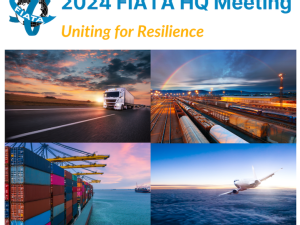The global aviation industry may be booming, with airlines set for a 10th straight year of profit, but not all investors are benefiting from the bonanza.
While the Airbus A380 remains a hit with passengers, the giant double-decker has been a tough sell with airlines. Airbus SE has managed to deliver just 234 of the jets over the last two decades, a fraction of the more than 1,500 747 jumbo jets that rival Boeing Co. has manufactured in the last half century. As a result, Airbus announced on Thursday that production will cease in 2021.
But it’s not just the European planemaker that’s troubled by a model it can’t sell. Investors in Germany alone have poured 1.6 billion euros ($1.8 billion) into aircraft funds that have made 21 of the superjumbos accessible as direct investments, according to rating company Scope Analysis. Their aircraft are operated by Singapore Airlines Ltd, Air France and Emirates.
The first aircraft have already come back. Singapore returned five A380s to investment firms Dr. Peters and Doric, and Air France, too, plans to hand back units. The French airline announced last week that it will cut its fleet of double-decker aircraft by half and return the leased jets to their owner. Those returns are a problem for the funds whose investors had hoped for fat returns on a seemingly safe-haven asset and are now finding that these are trading at barely half their issue price on the secondary market. For Dr. Peters alone, whose funds required a minimum investment of at least $10,000, that’s some 25,000 investors.
The future value of these investments will be determined in no small part by Emirates. The airline from Dubai is by far the biggest owner and operator of the A380, and brokered a last-minute deal with Airbus that will help keep the manufacturers’ production line alive for another two years or so. Still, it may return a total of seven leased superjumbos by 2024, Scope said. Since the funds typically require 12 to 13 years to redeem the outlays used to finance the aircraft, that means investors may end up owning an asset that is difficult to resell and has not yet been paid off.
“Investors that subscribed for the early planes confidently expected their money back when the planes were sold or re-leased at the end of their initial leases,” Bill Blain, a strategist at Mint Partners in London, wrote in a research note. “Instead, it could be many years before investors receive their money back – and amounts could be considerably less than expected.”
Elsewhere, money is also at risk. Doric GmbH and Nimrod Capital LLP between 2010 and 2013 set up three funds traded in London that own a total of 12 A380s. On Thursday, all of them fell to their lowest since their listing.
A secondary market so far has not come to fruition, either. Of the five units that were handed back to Dr. Peters, two ended up on a yard in France to get broken up for spare parts. Two others are mothballed and awaiting future deployment. Dr. Peters said it’s in “very concrete talks” about follow-on leases with potential interested parties.
The one A380 owned by Doric that did find a new home—with Portugal’s Hi Fly for a six-year lease—has ended up on the ground more than in the air. After a few tours last year with Thomas Cook Group Plc, Air Austral and Norwegian Air Shuttle ASA, the jumbo carrying the registration number 9H-MIP hasn’t operated a commercial flight since Dec. 24, according to data compiled by Flightradar24. Hi Fly declined to comment when contacted by Bloomberg, while Doric referred to Hi Fly.
“On the first few A380 deals its largely German retail and high net worth retail investors who will suffer, but the lessons will be learnt across the market,” Blain said. “Choosing the right aircraft to invest in is critical. Planes that command a ready second-hand market have proved much more positive investments. Generally the more of them, the more predictable the second hand market.”











